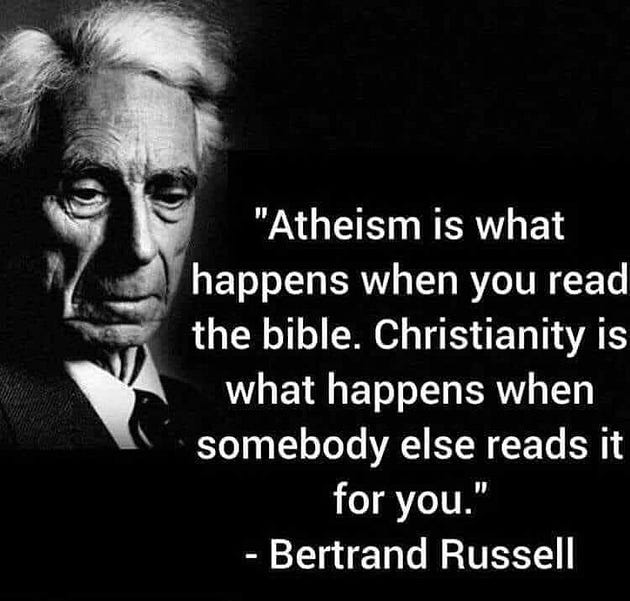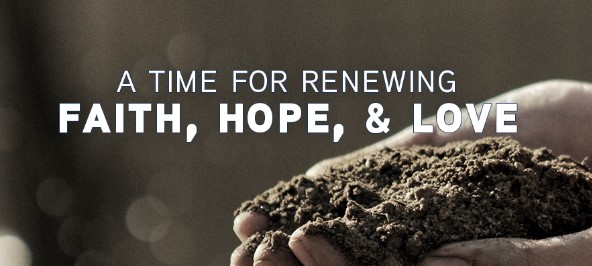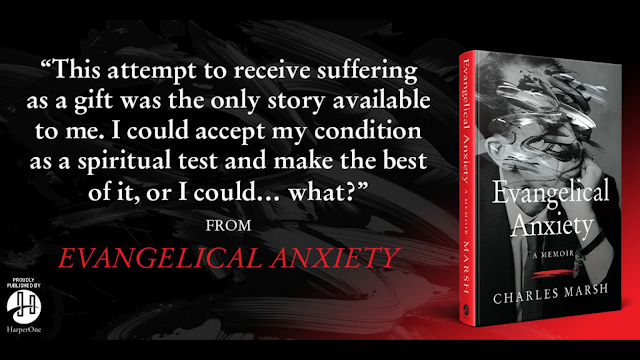A Loss of Faith Doesn't Mean
a Loss of Personal Faith...
But Perhaps It May Mean a Reorientation of Faith
by R.E. Slater
June 28, 2022
I came across Bob Schneider's article the other day and thought he made some important observations about why his Jewish faith was important to him as versus say, no faith, or the Christian faith he grew up in.
In contrast to Bob's experience, my own faith holds a lot of good memories of exploration and discovery, albeit from a Fundamentalist position, for the majority of my youth until I married into a conservative evangelical Reformed church. The conservative part was composed of pastor, the church board, and its affiliations (which later changed under a new pastor, Ed Dobson) and the progressive part was it's congregation. Years later this all changed again.
During that time I had just finished my psychology major and bible minor degrees at a private Christian college and had begun to attend seminary at the same school. It's roots were my roots - fundamentalist Baptist (GARB), but had by this time moved into the evangelical phase of Christianity (from 1930-60s dogma to 1970-80s semi-progressive thinking) because of its non-rural urban center.
My home church was also part of this movement where I had done a lot of urban ministries before leaving for a large university to study math and science, then transferring three years later to a private Christian curriculum. At that time I felt the Lord calling me into these next six years of study (a four year M.Div. degree) and student ministries which carried through until my mid-50s. As I have said, I had a full and happy spirit-life under many good teachers, preachers, professors, and friends. Then it all changed....
Removal and Renewal
As I read Bob's personal stories and experiences they resonated with me because I was immersed in my own growing evangelic faith which was moving towards a progressive stage in seminary, then an emergent Christian stage much later, and finally, a mega-progressive version of itself when I finally moved out of conservatism altogether.
Somewhere around the years of 2000-2010 I became cognizant of evangelicalism's culturally regressive movement (begun in the 1990s with its inerrancy declaration) towards a militant, excluding, even threatening, fundamentalist expressions of itself socio-politically and doctrinally. I speak to this as Dominionism. Others as Kingdom Reconstruction, that is, replacing any socio-politico system with a theocratic version of itself as determined by church rules, beliefs, and legalisms.
Evangelicalism's refusal to grow into contemporary academics and an expanded awareness of their own growing uncivil democracy (re fairness and equality) towards Muslims, women, lgbtq, immigrants, etc., had caused me to break faith with its "moral majorities" and "literal bible" claims to knowing God in 2012, ten years ago. Little did I know I was joining other dissenting Christians choosing a progressive verson of evangelicalism over its recalcitrant regression back into its dogmatic shell.
It also left me hanging out in thin air completely abandoned by my fellowship which refused to ask the hard questions I was asking of it to make. And so, began my journal here at Relevancy22 through many, many years of self-directed, and prayerful research, study, and personal writings.
A New Beginning...
I consider those early years of leaving what I had known extremely important to where I am now. During those first seven years of my journey here at Relevancy22 I was carefully laying out: i) what I was learning, ii) why it was important to me, and iii) where I thought it might be leading me towards. Those difficult and demoralising years required a lot of parsing of my faith and Scripture to get to where I am today.
Lately, these past three years, I've become very focused and directed in what I might generally describe as a post-evangelical expression of my immersive faith. One, I might describe as adding new elements, or character changes:
- One large change which was made from my tradtional Christian heritage was to remove my traditional Christian faith from it's synthesized forms of Greco-Western thought based in neo-Platonism. To do this, I had to explore Continental thought (I found it nicely tied into my earlier psychology and philosophy studies) which later led me in a round-about-way to Process thought ala Whitehead, Cobb, et al. And it is this latter outlook which has greatly expanded and informed this newer version of my reclaimed Christian faith into full conversations with today's sciences and academia. It is also where I try to focus a lot of my current articles these past recent years. To do that, I had to write myself out of the Old and into the New, proceeding theologically, and later, philosophically and culturally, as I intersected my faith with society.
- Another large change was to abandon the theological position of Calvinism altogether and to transition my theological upbringing back to my Baptist roots of Arminianism. As I did, I also repositioned my Reformed theology to a less harsher form of itself based upon a God of Love as versus its God of wrath and judgment. I found both of these adjustments to be very healthy changes to my own faith. Hence, when I speak to a Process Christianity, it would more specifically speak to my Protestant upbringing which I am familiar with. I do not pretend to know Catholicism or Orthodoxy well but can say that Process Christianity can quite easily absorb these theologies quite capably. And, I might add, many, if not most, of the world's religious and non-religious thought. Process Philosophy is what can be described as an Integrative Philosophy. Which is why it speaks so easily to evolution, the quantum sciences, and nano/bio/quantum technologies, et al.
- One last, though there are more foundational reasons then these several I am setting out here.... I had initially tried to discover a more pervasive hermeneutic for interpreting the bible but later realized after some years of research that my understanding of the bible actually needed a new philosophical basis, not a better hermeneutic. One that could more easily embrace an enlarged, interpretive, socio-progressive, biblical center (my evangelic background lies in Covenant Theology as versus my earlier fundamenalist position of neo-dispensationalism). A new hermeneutical approach to the bible could not resolve what was required. I needed an altogether different philosophical foundation... Not a better interpretation of Scripture. It took seven years of trial-and-error to discover this.... But again, it is why the Spirit of the Lord brought me through such a desperate time of spiritual pain, anguish, and blackness. Without this personal experience I would not have had the resolve to have endured as long as I did at this formidable task. But like any figure of the bible who has come through a loss of faith I came out of my own upheavals with an exceptionally clear vision of what needed to be done, thanks be to God's leading and guidance.
The tasks set before me were:
- First and foremost, to deconstruct and dissent;
- Second, to begin reconstructing a better theology more conversant with society; and,
- Third, to settle in enough to expand this new theologic center.
Moreover, this renewed Christian faith had to be:
- One centered around doubt-and-uncertainty, not strict positionalism;
- One which leaves a lot of room for open-ended discussions to future discoveries and human learning;
- One that might be expansive enough to receive all faith-seekers yearning for something beyond the material realm knowing that a living faith meant a living God;
- One which was deeply relational and dynamic in its faith expressions which moves progressively upwards with one's communities; and lastly,
- One whose absolute center of faith is founded on a God of absolute Love. For without love, even God himself would be like a clanging cymbal:
If I speak with the tongues of men and of angels, but do not have love, I have become a noisy gong or a clanging cymbal. (1 Co 13.1)
Now you would think this was an easy task to discover a better expression of God-and-faith than the evangelical one I knew but it was anything but easy. When begun, I went into a spiritual tailspin I can only describe as having all I thought I knew-and-believed removed from underneath me.
This desert land of wilderness was a harsh place to live for the length of time the Lord left me there. And it was in this spiritual space I refused to move unless the Lord drew me out. Several times I nearly abandoned this Spirt-enforced wilderness but it was nearly a year before I felt I had the Spirit-vision needed to leave by the Lord's call even as he had called out to Lazarus to "arise and come out of the lands of death" which encircled and held him in its grasp.
Remember too, I had no one to help me in this task though I tried. Later, I would be joined by many other questioning faith seekers (the late Rachel Held Evans was one) whom the Spirit had come upon to stir their heavy hearts and souls. And later still, I would find the foundation I was seeking. But it would take a few years to get there.
Hence, this next stage of Christ-renewal was one of removal, relearning, acquisition, and announcement. I had to have time to rethink my past evangelical theology so that it would make more sense to those who, like me, had fallen out of their church's belief system through disappointment, disillusionment, or lost of perspective.
Below, Bob's journey took him in a similar, but different, direction than mine own. But one just as valid for his own spiritual life as was mine. Though I must insist on Jesus and his atoning work as the center of my Christian faith I can understand why the Jewish faith has become important for so many others.
However, as point of fact, Process Theology's center is that of relationality. It is the outcome of a Loving God embracing creation. Without a relational faith with our Creator/Redeemer, with one another, or with God's creation, we would be spiritual paupers.
Hence, Judaism is not the only faith centered in relationships. A good Christian faith - like the one I grew up in before it fell apart - runs around this center of relationality in its faith-theology. And in Process Christianity (which is similar in outcome, but significantly different in its doctrinal foundations, than progressive evangelical Christianity) "relationality" is its very core. Thus it is aptly described as a Process-Relational Theology whose outcome is social progressiveness in the embrace of a society in search of faith-communities center around God's love as expressed through Jesus' salvation.
Peace,
R.E. Slater
June 29, 2022
Follow up article
An XGen Indie Artist Speaks Up for Jesus
* * * * * * * * *
 |
| A popular, but incorrect, meme found on Facebook |
WHY I'M NOT AN ATHEIST
June 26, 2022
The Bible is a collection of stories about myths and legends not to report or record history, but to make a theological point.
I suspect this article will irritate two groups of people: atheists, and Fundamentalist Christians. I’m not judging your religious beliefs, or lack thereof, rather I am often asked why I am not an atheist? I am asked this question nearly equally by the two above-named groups. Many of my friends, and family members don’t understand my reasons for abandoning Christianity, my mother’s religion.
On social media, I mentioned that the Bible is not the word of God. It is a collection of myths, stories, and often questionable history. A few fundamentalist folks immediately proclaimed me a heretic and an atheist.
This event followed my visit to an Atheist site that proclaimed the Bible a lie, and that people were worshipping a fantasy. The atheists proclaimed me an ignorant fool who prays to thin air and is anti-science.
Neither case is true, especially the latter.
I was raised in my mother’s Baptist tradition, complete with two Southern Baptist minister uncles. I could memorize phrases from the Bible and use them as “proof” of truth with the best of them.
As a boy, I ran into a buzzsaw at the Wall Street Baptist Church in Kankakee, Illinois, my hometown. My sins must have been memorable because I was sent to the church’s basement with the minister’s wife, so she could engage in some one-on-one brainwashing.
She was not the most intellectual of women.
Here was my deep sin that caused hand-wringing and great concern for my immortal soul. I dared to ask a Sunday School teacher in front of kids why there were two creation stories in the Bible? I wanted to know why Genesis Chapters 1 & 2 are contradictory, with only a shred of similarity?
Rather than answer the question, I was told there weren’t two and I should learn to read. Undaunted, I asked if we all were descendants of Adam and Eve, and she said yes, they were the first created by God, and every human on earth is their descendant.
This was where I ended up in the basement. I asked the teacher, how could that be? Eve had three sons, and who were these people later that Eve’s sons married? Exasperated, the Sunday School teacher told the kids to lay hands on me as she prayed for the demons to be cast out of my soul. She then left, returning with the pastor’s wife.
I won’t regale you with the conversation that led the minister’s wife to hate me until the day she died. Those are stories for another day.
There is a big problem the religious have, and that is a lack of faith, and so they need to hang their faith on a book that is comprised of myths, legends, shakey history, and some outright fiction. It is a trap many thinking people are pushed into, only to fall through the door into believing it is all a lie.
My Mother left our small church primarily because of me. My ability to read, not accept anything at face value and question authority made her scorned by the church management. She had given birth to a heretic and my questions reflected on her as a parent in a negative light.
My mother taught me to question and challenge authority, and she is from where I learned how to state my case the right way. My curiosity reflects on her as a parent in a good way. There is not a religion on earth that doesn’t try to encourage unquestioning, blind obedience, and people like me are a pain for ministers.
Mom stopped taking me to church, and that probably was best for my spiritual life. I was free to read, and question and she didn’t tell me I was Hellbound as I had heard in church. I decided that Christianity was not for me, but I delayed dropping that bomb for a very long time.
I trudged off to college, and in my first semester took a course in religious studies. It was finding an oasis in the desert of religious anti-intellectualism. There is an ocean of differences between biblical scholarship and promoting faith to the masses.
On day one of the class, after a lecture from the professor about statements based on scholarship vs. faith statements, she delivered the news that Moses did not write the first five books of the Bible. I wanted to jump up and scream, “I knew it!” In the Torah, I read laws prohibiting Jews from intermarriage with people from nations that did not exist at the time of the Exodus, and would not come into existence for hundreds of years later.
Many people come to college, take religious studies, and turn to atheism. They feel they are worshiping a big lie. Some adopt atheism as a religion and run around with the zeal of any Christian evangelist spreading their Gospel of Don’t Worship a Lie.
 |
| Photo by Aaron Burden on Unsplash |
I was lucky. I had a professor who taught more than just scholarship applied to religious writings. She taught me how Bertrand Russell in the meme above got it very wrong.
Her Doctorate is in ancient literature. She taught, and I believe, that the Bible is a collection of stories about myths and legends not to report or record history, but to make a theological point. Approaching it in that light took away the big lie stigma others face when scholarship meets faith. Instead, I was studying literature.
I thought of myths in terms of Greek Mythology. Surely no one believes that man received fire because Prometheus gave it to humans, thereby angering Zeus to the point that Prometheus was chained by Zeus, and his liver eaten by eagles. While it is absurd to believe that myth, there are stories in the Bible no less sensational. In later courses, I learned that the writings of Homer share much in common with The Bible.
The stories that sell myths are literature, and often fiction with tales of magic. They explain the unexplainable and are enlarged by the authors not to be taken literally, but to illustrate a point and teach a theological lesson.
From Dr. Morey-Gaines, I learned about many of the allegories in the Bible. For those who need a refresher on the definition of an allegory, it is a story or poem that is used to illustrate a moral or a political point. Emphasize the word story, because as a story, absolute fact is not required.
The Sodom and Gomorrah story is a prime example. A “righteous man” as the yarn unfolds, does not accurately describe Lot, the protagonist of the tale. There are many messages and sub-messages in the narrative that has nothing to do with sin and debauchery. Two of the central messages of Sodom and Gomorrah are: “get away from evil people,” and “don’t look back.” Whether a city was destroyed, or a woman was killed is not the point.
The dual stories of creation are not the only contradictions in the first five books. I read a source that counts thirteen dualities and contradictions in the Torah.
The Babylonian Creation Myth is the foundation of Genesis 1 and 2, which makes sense, as tradition places Abraham as from Mesopotamia. The myth is present in other religious traditions. Judaism borrows from other traditions, like borrowing the creation story, and puts a local spin on the stories.
In 2022, there are no purely native religions. All have borrowed one another’s material. It grates on the nerves of those who practice religious orthodoxy when I say it’s all good. That is my steadfast belief.
I don’t accept the notion that the Bible is dictated by God. When it is called The Word of God, that is marketing. It is the work of men and many men.
If the religious among us read this far, and I doubt many will, they may ask themselves how can this guy be a theist? Likewise, I am sure some atheists somewhere will think the title of this narrative is clickbait, and deep down I am one of them.
There is another element to my story that I have not brought up. That is the Jewish element, which is central to why I am a thinking person, yet not an atheist.
Whether Jews and Christians want to admit it, the destruction of the Jerusalem Temple was a seismic event for both religions and forced the two branches into a decision. For Jews, it was the birth of Rabbinical Judaism. With no temple, there was no longer a need for Priests, so the Sadducees became people without a job, while the bookish Pharisees emphasized reading Torah and praying, laying the foundation for today’s Judaism.
The loss of the Temple forced Christians to cope by extricating themselves from Judaism and concentrating on the person of Jesus of Nazareth to fill the Temple void. So the destruction of the Temple, rather than the crucifixion in my view was the splitting of Christians and Jews.
In my studies of Judaism, the Torah, Tanakh, and readings in the Talmud, Judaism appeals to me because it concentrates on how we are to relate to one another charitably in this life, rather than emphasizing a life to come. It is about my relationship with a Creator in the here and now and has no hoops to jump through to find God while providing me a guidepost on how to treat others.
Judaism is a three-thousand-year-old tradition, and I am part of it. It horrifies some members of my family who are incredulous at my decision. However, it is my decision, and I am now part of that tradition.
Judaism was good enough for Jesus, and it is good enough for me.
If there is any interest, I will write another text about how I feel about Christianity. It is the religion of my mother and her family. I have no hostility or disrespect for the faith. It is a beautiful religion as they all are when not weaponized for political ambitions.
I have wonderful memories of Christmas with my mom’s family, and with my former wife and children, filled with warmth and love. I can belt out a round of Hark the Herald Angels Sing with the best. Many find comfort, meaning, and God through Christianity. I respect that and my beliefs do not invalidate their religious beliefs.
 |
| Photo by Greg Rakozy on Unsplash |
When I was a young man, often I would try to imagine infinity. I tried to picture the universe expanding with no end and try to comprehend how it all started from nothing.
When I failed in wrapping my brain around that which can’t be enclosed, my only conclusion was the same as the desert dwellers three-thousand years ago, as they sat by their fires telling stories that one day would become scriptures: There must be a God.





















